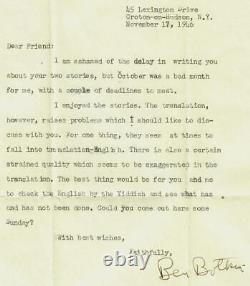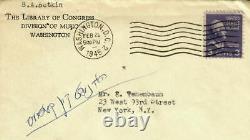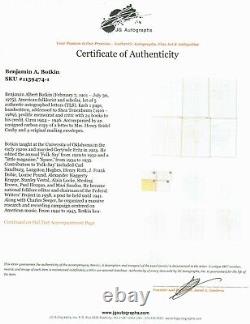
- Homepage
- Industry
- Player
- Carmella (5)
- Cristiano Ronaldo (6)
- Dale Earnhardt (5)
- Derek Jeter (6)
- Hank Aaron (7)
- Jackie Robinson (10)
- Julian Edelman (5)
- Kobe Bryant (54)
- Lebron James (14)
- Lionel Messi (8)
- Michael Jordan (45)
- Mickey Mantle (10)
- Mike Tyson (14)
- Muhammad Ali (5)
- Patrick Mahomes (8)
- Ronald Acuna Jr. (7)
- Ted Williams (9)
- Tom Brady (17)
- Undertaker (9)
- Willie Mays (8)
- Other (4015)
- Product
- Signed
- Sport
- Auto Racing (6)
- Baseball (297)
- Baseball, Football (3)
- Baseball-mlb (30)
- Basketball (154)
- Basketball-nba (50)
- Billiards (3)
- Boxing (37)
- Cricket (5)
- Football (176)
- Football-nfl (30)
- Golf (7)
- Golf-pga (3)
- Hockey-nhl (3)
- Ice Hockey (29)
- Motor Sport (20)
- Racing-nascar (4)
- Soccer (50)
- Wrestling (94)
- Wrestling-wwe (8)
- Other (3258)
- Team
- Atlanta Braves (22)
- Baltimore Orioles (10)
- Boston Red Sox (14)
- Chicago Bears (8)
- Chicago Bulls (34)
- Chicago Cubs (11)
- Detroit Tigers (6)
- Green Bay Packers (9)
- Indianapolis Colts (8)
- Kansas City Chiefs (14)
- Los Angeles Angels (21)
- Los Angeles Dodgers (17)
- Los Angeles Lakers (56)
- New England Patriots (21)
- New York Giants (9)
- New York Mets (6)
- New York Yankees (53)
- San Diego Chargers (7)
- Seattle Mariners (7)
- Toronto Blue Jays (6)
- Other (3928)
RARE! Folklorist Benjamin Botkin Hand Signed TLS Dated 1946 JG Autographs COA






"Folklorist" Benjamin Botkin Hand Signed TLS Dated 1945 on Library of Congress Letterhead. This item is certified authentic by. And comes with their Letter of Authenticity. (February 7, 1901 - July 30, 1975) was an.
Botkin was born on February 7, 1901, in. English High School of Boston. A year later in 1921, and his. In 1931, where he studied under.
In the early 1920s and married Gertrude Fritz in 1925. From 1929 to 1932 and a "little magazine, ". He became national folklore editor and chairman of the. In 1938, a post he held until 1941. He organized a massive research and recording campaign centered on American music.
From 1942 to 1945, Botkin headed the. Archive of American Folk Song. Where he focused attention on the emerging aspects of folklore in modern life. During that time, he also served as president of the.
At a panel of the 1939 Writers' Congress, which also included. Botkin spoke of what writers had to gain from folklore: He gains a point of view. The satisfying completeness and integrity of folk art derives from its nature as a direct response of the artist to a group and group experience with which he identifies himself and for which he speaks. " Botkin called on writers to utilize folklore in order to "make the inarticulate articulate and above all, to let the people speak in their own voice and tell their own story. Botkin was harassed and subject to surveillance for many years by the. A recent study by Professor Susan G. Davis documents extensive surveillance of Botkin over more than a decade. Botkin died on July 30, 1975 in his home in. Botkin embraced the ever-evolving state of. According to him, folklore was not static but ever changing and being created by people in their daily lives. He developed his novel approach to American folklore while teaching in. And later working in the federal government, as part of the Federal Writers' Project, during the late 1930s and early'40s. He became Folklore editor of the Writers' Project in 1938. His efforts working with the Library of Congress led to the preservation and publication of the ex-slave narratives, part of the Federal Writers' Project. Lay My Burden Down: A Folk History of Slavery. Was the first book to use. While many researchers viewed folklore as a relic from the past, Botkin and other. Folklorists insisted that American folklore played a vibrant role in the present, drawing on shared experience and promoting a democratic culture. Botkin served as the head of the. And Alan Lomax between 1942 and 1945. He became a board member of People's Songs Inc. At that time Botkin left his government post to devote full-time to writing. During the'40s and'50s he compiled and edited a series of books on folklore, including.A Treasury of American Folklore. A Treasury of New England Folklore. A Treasury of Southern Folklore. A Treasury of Western Folklore.
A Treasury of Railroad Folklore. A Treasury of Mississippi River Folklore.
A Civil War Treasury of Tales, Legends and Folklore. Botkin explained his values: In one respect it is necessary to distinguish between folklore as we find it and folklore as we believe it ought to be. Folklore as we find it perpetuates human ignorance, perversity, and depravity along with human wisdom and goodness.Historically we cannot deny or condone this baser side of folklore - and yet we may understand and condemn it as we condemn other manifestations of human error. Accordingly, during the'50s and'60s. Attacked Botkin's work, which he considered unscholarly, calling much of what was included in his books fakelore. Botkin ignored Dorson and disregarded his criteria. Folklore, he believed, was an art to be shared, not an exclusive artifact for scholars.
His idea that folklore is basically creative expression used to communicate and instill social values, traditions, and goals, is widely accepted by folklorists today. Botkin insisted that democracy is strengthened by the valuing of myriad cultural voices.

